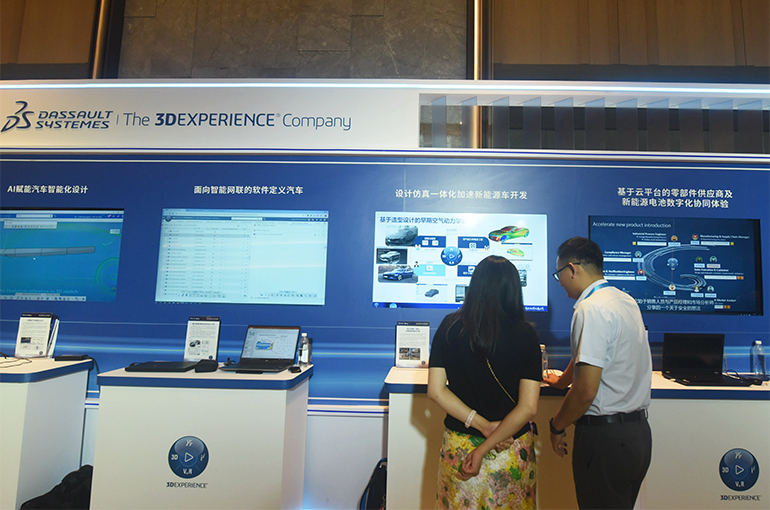 France’s Dassault Hikes Investment in China’s Thriving New Energy, EV, and Biomedicine Sectors
France’s Dassault Hikes Investment in China’s Thriving New Energy, EV, and Biomedicine Sectors(Yicai) July 11 -- Dassault Systèmes has been raising its investment in China in the new energy, electric vehicles, and biomedicine industries because of their huge growth potential, according to the managing director of the French software giant’s local arm.
With its Asia-Pacific headquarters sited in Shanghai, Dassault has continued to invest in the Chinese market in recent years, Zhang Ying told Yicai yesterday.
Dassault entered China in the 1980s, recognizing the potential of its growing industrial and technological sectors. The Vélizy-Villacoublay-based company, which creates software for carmakers and aircraft manufacturers as well as industrial and medical companies, is still expanding its presence in the Chinese market.
Just this May, it set up a center for power battery simulation and smart manufacturing innovation in Yibin, Sichuan province to undertake battery and new energy engineering projects across the country and globally, Zhang said.
With the development of artificial intelligence and digital technologies, Chinese medical firms have a growing need for software, he pointed out.
Medidata, a medical software developer Dassault acquired five years ago, supports all the PD-1 drugs covered by China’s medical insurance system, Zhang said. PD-1 drugs are used in cancer treatment to help the immune system fight tumors more effectively.
Zhang noted that Medidata, which has the world’s largest database of historical clinical trials, supported four novel Chinese drugs approved by the United States Food and Drug Administration and more than 20 licensed-out innovative medicines developed by Chinese drugmakers, with each transaction in excess of USD500 million.
Dassault will also deepen cooperation with Chinese partners in aerospace and infrastructure digitization, Zhang noted.
Dassault announced preliminary earnings results for the second quarter on July 9, estimating revenue at EUR1.5 billion (USD1.63 billion), compared with its previous guidance of EUR1.53 billion to EUR1.56 billion. It expects earnings per share to rise 8 percent to 11 percent this year, less than its earlier forecast of a 10 percent to 12 percent gain.
Despite significant global economic uncertainty, Dassault’s fundamentals are solid amid the major trends of AI and digital transformation, Executive Chairman Bernard Charlès told Yicai.
Editor: Futura Costaglione